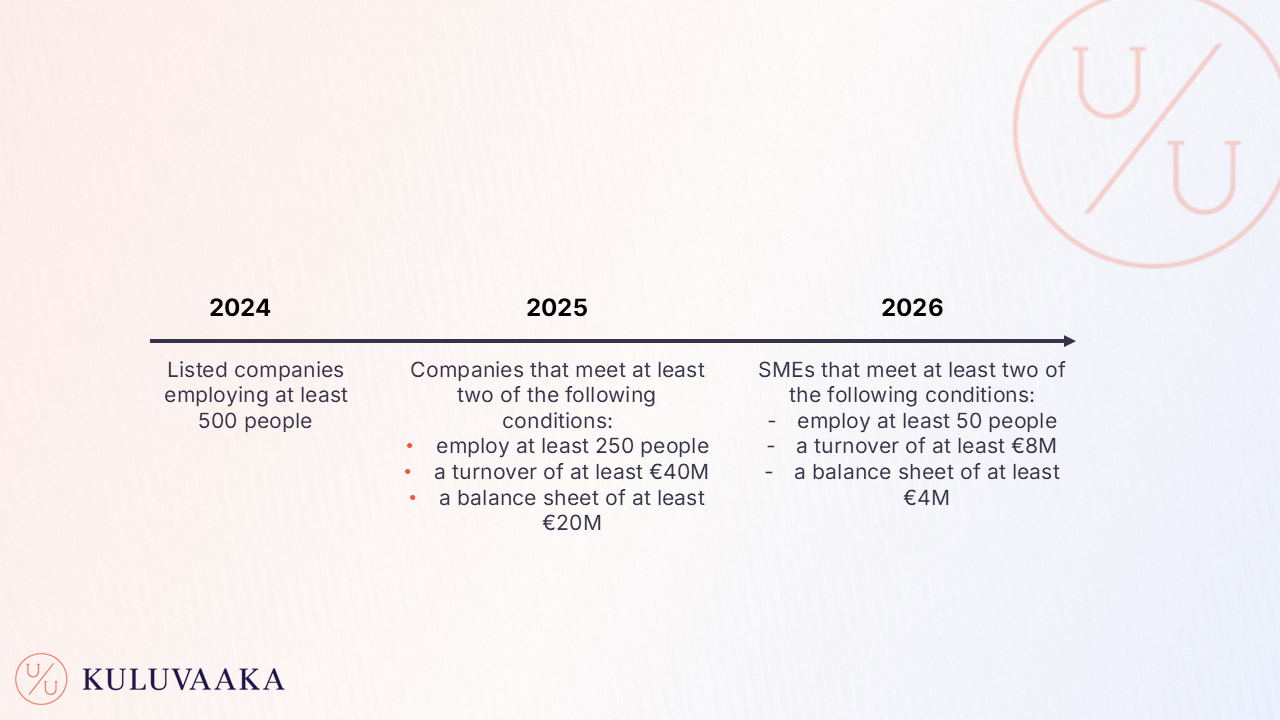Properly managed competitive tendering can save a company several person-years. Sustainability requirements and mandatory reporting obligations, such as the CSRD (Corporate Sustainability Reporting Directive), are putting pressure on companies to act responsibly. This shift has made corporate responsibility a critical part of business, meaning that responsible tendering is no longer just a tool for cost efficiency but a way to take responsibility transparently and sustainably. How can sustainability, quality, and price all be incorporated into your purchasing activities?
Conflict arises in companies when not everyone is aiming for the same goal. The best approach would be for both income and expenses to interest the entire staff. In many companies, the CEO is not and cannot be aware of everything, as tasks are decentralized and handled by many different individuals. The matrix can lack a clear overall picture, leading to suboptimization from the owners’ perspective.
Competitive Tendering Supports ESG Goals
Competitive tendering supports a company’s ESG (Environmental, Social, Governance) goals in many ways. First, by tendering, a company can choose subcontractors and partners who follow the same responsibility principles. CSRD requirements, for instance, demand that companies assess the environmental and human impacts of their entire supply chain. Well-planned competitive tendering supports these goals and improves the company’s transparency and credibility in sustainability reporting. By tendering, a company can reduce costs while also improving its sustainability profile.
Competitive tendering allows a company to reduce costs while also improving its sustainability profile.
What is CSRD and How Does It Affect Me?
CSRD (Corporate Sustainability Reporting Directive) is an EU regulation that introduces broader and more detailed sustainability reporting requirements for companies. Its goal is to improve the comparability and transparency of corporate reporting and prevent “greenwashing,” where companies market seemingly environmentally friendly actions without real sustainability measures. CSRD requires companies to report on ESG (Environmental, Social, Governance) data comprehensively, undergo audits, and collect digital data, all of which help companies build genuinely responsible business models and achieve their sustainability goals more effectively.
The most significant change is that sustainability reports must now be verified by a third party.
Alle on eritelty CSRD:n käyttöönotto ensimmäisen raportoitavan tilikauden perusteella.

Concrete Benefits of Sustainable Competitive Tendering
Competitive tendering offers many advantages that benefit both the company and its stakeholders:
- Reducing Environmental Impacts: By choosing responsible service providers, a company can reduce its carbon footprint. Under CSRD, companies must report their emissions according to Scope 1, 2, and 3 classifications, requiring more detailed data on indirect purchases.
- Supporting Employee Wellbeing: Competitive tendering can also support employee wellbeing and safety. Many companies value partners who ensure workplace safety and fair working conditions. This reflects positively on employee satisfaction and commitment and reduces absenteeism. For example, sustainably organized occupational health services can increase wellbeing and save long-term costs. [Read more about occupational health and care chain optimization].
- Transparent Operations: CSRD reporting requirements demand that companies provide a clear picture of their operations from an ESG perspective. Transparent reporting not only improves stakeholder trust but also makes it easier to compare sustainability across the market. With external audits and sustainable tendering, companies can show that their operations can withstand critical scrutiny, supporting the brand and strengthening its market position. [Read more about the benefits of independent audits and competitive tendering].
- Meeting Consumer Expectations and Strengthening the Brand: Consumer interest in sustainability has grown, and they value companies that contribute to the environment and society. By tendering responsibly, a company can increase its brand attractiveness and customer loyalty. This not only provides a direct competitive advantage but also increases the company’s long-term value.
- Access to and Affordability of Financing: Responsible business practices make it easier to obtain financing and can reduce loan costs, as banks and financiers closely follow sustainability reports. With CSRD, sustainability reporting gives companies a way to show their commitment to ESG criteria, making them more attractive investment opportunities.
Sustainably Run Business, Better Results. What Needs to Change?
Revenue is important, but what remains below the line depends entirely on costs. Why can two similar-sized companies in the same industry make 100% different profits? One 5% and the other 10%?
In our view, it is more valuable for the national economy to have viable companies in Finland that grow domestically and export products and services worldwide. This requires long-term thinking and open-mindedness. The old model needs to change.
We should all be more curious and question things much like children do. We should constantly think about different ways to approach the same situation.
Companies should get their teams thinking in new ways, and owners should demand more. Often, new and innovative thinking, open-mindedness, and courage are needed. We need ways to constructively question current practices. We should consider core competencies, partnerships, ecosystems, and outsourcing opportunities in areas that are not vital to operations.
CSRD brings changes that require companies to commit to sustainability over the long term and actively renew their practices. Competitive tendering plays a key role in this – it is a tool with which a company can reduce its costs and support its sustainability goals. It is modern responsibility that supports both business and the sustainable development of society.
Do you see any obstacles to an external party reviewing your current service contracts and conducting a cost audit of your company’s indirect purchases? Risk-free.
Kuluvaaka’s services make your sustainability reporting easier while often saving you the equivalent of several employees’ annual salaries. By reviewing these contracts, you keep more staff employed. A responsible owner and operational management should check all the details before potential layoffs.
Contact Us
Contact us to benchmark your company’s purchasing contracts.
"(Required)" indicates required fields